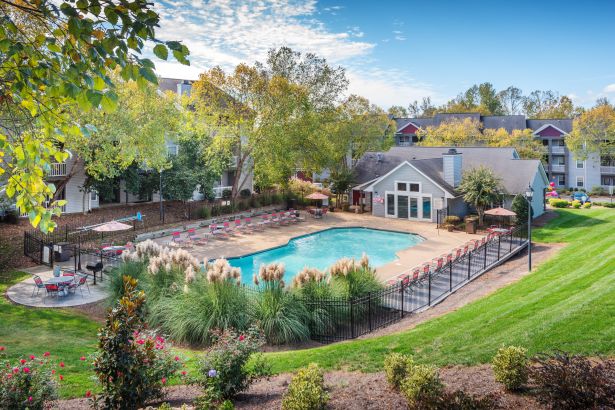Commercial Observer Partner Insights: How would you characterize the state of diversity in commercial real estate today?
D. Edward Greene: Commercial real estate has lagged behind many other industries in terms of progress. I would say it has gone from very bad to bad.
I remember 20 years ago, when I entered the space, I went to a conference in Boston with about 800 attendees. As an African American, I think I saw two or three other Black people there. And I knew one of them because we went to school together.
Now, 20 years later, the industry is more diverse, but it still lags significantly. When you do find diversity, it tends to be at lower-level or back-office positions.
What do you think is the root of the problem in regard to CRE?
We haven’t looked at DE&I as a business imperative. A lot of companies have an archaic view of diversity. They treat it as a check-the-box exercise. Few companies have thought through how they can make it a sustainable effort or a competitive advantage.
What we’re trying to achieve here at Lument is to embed DE&I into everything we do, including making it an integral part of business performance. If I’m leading a business, my first question would be, “What am I missing in the marketplace?”
From a competitive standpoint, the world is changing very rapidly, and I need to know what may impact our business. What type of talent and skill set do I need so I don’t miss out on a trend? What can I do to improve my bottom line? Again, what am I missing?
Once the issues or emerging challenges are identified, we then ask how DE&I can be used to address these issues and challenges. Leveraging DE&I best practices to address key business issues and challenges not only helps us remain competitive, but also increases the likelihood of sustaining DE&I over time as it becomes embedded in our business practices. Many organizations do not approach DE&I this way.
Talk about some of your accomplishments in this area throughout your career.
When I worked for Freddie Mac, I served on its executive diversity and inclusion council and led one of its employee resource groups. In these roles, I gained a good understanding of the company’s diversity and inclusion strategy and the importance of leveraging diversity and inclusion to drive performance.
Simultaneously, I managed the affordable housing credit team. When I joined the team, I needed to build a team to help address some of the challenges we faced. Specifically, we needed to improve the customer experience, as well as speed and certainty of execution. To accomplish this, we needed to find the best employees with skill sets that would help address our challenges. I advertised to every, single demographic group, saying, “We’ve got great opportunities. We want to do great things here. You need to apply.”
My team — and this is unheard of in commercial real estate — was 70 percent women, and 62 percent ethnic minority. More importantly, by leveraging our diversity, we significantly improved the customer experience, improved speed and certainty of execution with quantifiable metrics, and introduced innovations that were well received and, ultimately, adopted by the larger credit division at the request of customers because of how well they worked within TAH.
I would also add that we had one of the lowest turnover ratios and a deep talent pipeline, even during periods when the larger division was experiencing turnover. All of these efforts positively contributed to our brand and productivity. In short, we leveraged diversity and inclusion as a strategic advantage to drive business performance.
Let me give you another example. At Freddie Mac, there was a transaction we had the opportunity to finance. One of my colleagues responded, “You do not want to invest in this property. In fact, I’m afraid to even drive to the neighborhood.” I went to another colleague and asked if she would visit the property. She was from Chicago, and she happened to be of the same demographic of residents of that neighborhood. When she returned from conducting a site inspection of the property and touring the neighborhood, she asked, “What is wrong with this property? I can’t understand why we’re not doing this project.”
Based upon her assessment, we ended up doing that transaction, which, in turn, led to an additional $60 million in business. The first colleague is a great friend of mine, and I can’t and won’t attribute anything negative to his character personally; however, we are all influenced by our environment, and he was unable to see an opportunity that another person from that demographic was able to see. This begs a question: “How much money are we leaving on the table just because we’re limited in our experience?” This is another example of how having a diverse and inclusive culture can positively impact business performance.
You work with affordable housing. Talk about some of the more prevalent industry trends you’re noticing these days.
There used to be a very stereotypical idea of what affordable housing is. But I think there’s a more comprehensive understanding now that it not only impacts low-income Americans, but middle-income Americans as well.
In addition to low-income Americans, many working-class, middle-income Americans are unable to afford rent in areas near their work. Many also spend a disproportionately high percentage of their disposable income on housing. This has helped raise awareness of the affordable housing crisis in our country.
Also, there’s a trend toward environmental, social and governance (ESG) investing. In recent years, significant capital has moved into this asset class. This, in turn, has introduced more investors to affordable housing as an asset class. This additional capital has positively impacted pricing within affordable housing finance. Last year, both Fannie Mae and Freddie Mac issued impact investment securities to meet the increased investor interest in this asset class.
Talk about some of the financial instruments Lument is planning to help further progress in these areas.
We’re working on products that will accomplish two things. The first is bringing more dollars into affordable housing. And the second is trying to figure out how we can lower the cost of capital that, in turn, can help produce more affordable housing.
I will also mention that many affordable housing properties have social service programs in place to support tenants. Through our corporate social responsibility initiatives, we are identifying opportunities to partner with our borrowers to support low-income tenants at the properties we finance.
Ultimately, what are your long-term goals for Lument in terms of diversity, equity and inclusion?
Lument is one of many companies with an increased focus on DE&I. We are committed to embedding DE&I in all that we do and leveraging our diversity to drive performance. Further, we are taking a leadership role in the industry through our involvement with the Fannie Mae [Delegated Underwriting and Servicing] DE&I Subcommittee and other activities to bring about change across the industry.
I look forward to the day when DE&I is not talked about as a separate topic, but is so embedded in companies’ culture that it is spoken of in the same vein as business strategy, a well-defined business practice.

